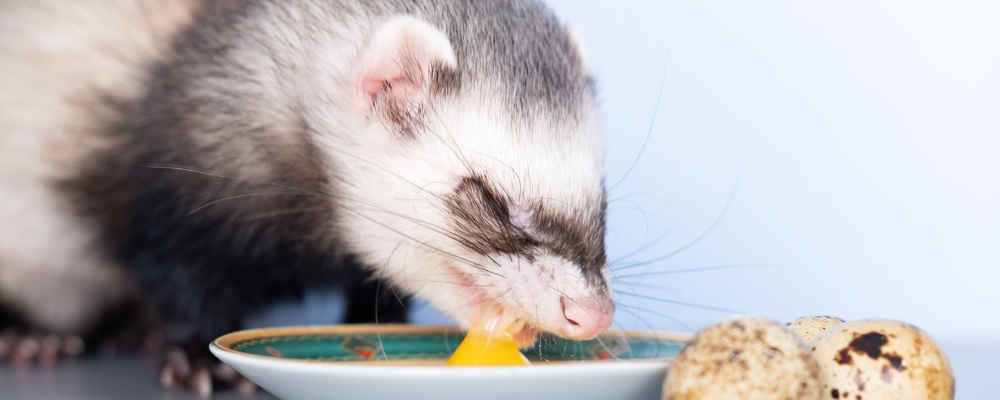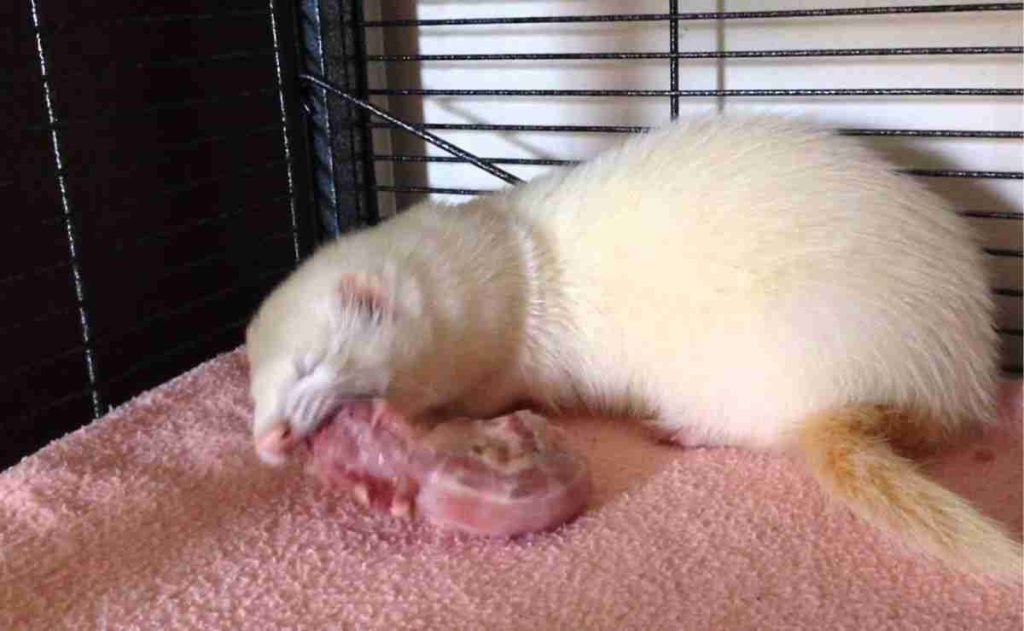
Homemade Ferret Diet with Raw Ingredients
Ferrets are obligate carnivores, meaning their bodies are designed to digest and absorb nutrients from animal-based sources. While commercial ferret foods are readily available, some ferret owners opt for homemade diets, particularly raw food diets, to better mimic their pet’s natural prey. A well-formulated homemade raw diet can offer several benefits, including improved digestion, healthier skin and coat, and increased energy levels. However, it’s crucial to understand the specific nutritional needs of ferrets and follow a balanced recipe to avoid deficiencies and health problems.
Understanding Ferret Nutritional Needs
Before diving into raw feeding, it’s essential to grasp the nutritional requirements of ferrets. They need a diet that is high in protein, moderate in fat, and low in carbohydrates and fiber. Here’s a breakdown of the ideal macronutrient ratios:
- Protein: 30-40%
- Fat: 18-30%
- Fiber: Less than 4%
In addition to macronutrients, ferrets require specific vitamins and minerals, such as taurine, calcium, and phosphorus, which are essential for their overall health and well-being.
Benefits of a Homemade Raw Ferret Diet
- Improved Digestion: Raw food is easier for ferrets to digest than processed kibble. The enzymes present in raw meat aid in digestion, reducing the strain on their digestive system.
- Healthier Skin and Coat: The high fat content in raw diets, particularly from animal sources, promotes healthy skin and a shiny coat. Essential fatty acids like omega-3 and omega-6 contribute to skin health and reduce inflammation.
- Increased Energy Levels: Raw diets provide a readily available source of energy for ferrets. The high protein and fat content fuel their active lifestyle and help maintain a healthy weight.
- Better Dental Health: Chewing on raw bones and meaty pieces helps clean their teeth and prevent tartar buildup, reducing the risk of dental disease.
- Mimics Natural Diet: A raw diet closely resembles the natural prey of ferrets, providing them with the nutrients they would obtain in the wild.
Ingredients for a Homemade Raw Ferret Diet
A balanced homemade raw ferret diet should consist of the following ingredients:
- Muscle Meat: This is the primary source of protein and should make up the majority of the diet. Suitable options include chicken, turkey, rabbit, and beef.
- Raw Edible Bone (REB): Bones provide calcium and phosphorus, which are essential for bone health. Chicken necks, wings, and thighs are good choices. The bone must be raw and crushable. Cooked bones can splinter and cause internal damage.
- Organ Meat: Organs are rich in vitamins and minerals. Heart, liver, and kidney are particularly important. Liver should be limited to about 5-10% of the diet due to its high vitamin A content.
- Other Animal Products: Eggs (including the shell) can be added for extra nutrients. Fish oil is a good source of omega-3 fatty acids.
Sample Raw Ferret Diet Recipe
Here’s a sample recipe for a homemade raw ferret diet. Adjust the quantities based on your ferret’s individual needs and preferences:
- 70% Muscle Meat (e.g., chicken thighs, ground turkey)
- 10% Raw Edible Bone (e.g., chicken necks, wings)
- 10% Organ Meat (5% liver, 5% other organs like heart, kidney)
- 10% Other (Eggs, fish oil)
Preparation and Feeding Guidelines
- Sourcing Ingredients: Obtain fresh, high-quality ingredients from reputable sources. Ensure the meat is free from additives and preservatives.
- Grinding or Cutting: Grind the meat, bones, and organs together using a meat grinder. Alternatively, cut the ingredients into small, manageable pieces.
- Portioning: Divide the mixture into individual portions based on your ferret’s daily caloric needs. A general guideline is to feed 2-4% of your ferret’s body weight per day, divided into multiple meals.
- Thawing: Thaw frozen portions in the refrigerator overnight. Never thaw raw meat at room temperature.
- Feeding: Offer the raw food to your ferret. Discard any uneaten food after 30 minutes to prevent bacterial growth.
- Hygiene: Practice strict hygiene when handling raw meat. Wash your hands thoroughly after preparation and clean all surfaces and utensils with hot, soapy water.
Supplements
While a well-formulated raw diet should provide most of the necessary nutrients, some ferrets may benefit from certain supplements:
- Taurine: Taurine is essential for heart health and vision. Supplementation may be necessary, especially if the diet is low in heart meat.
- Vitamin E: Vitamin E is an antioxidant that supports immune function and skin health.
- Omega-3 Fatty Acids: Fish oil or flaxseed oil can be added to boost omega-3 intake, promoting healthy skin and coat.
Transitioning to a Raw Diet
Transitioning your ferret to a raw diet should be done gradually to avoid digestive upset. Start by mixing a small amount of raw food with their current kibble. Gradually increase the amount of raw food while decreasing the kibble over a period of 1-2 weeks.
Monitoring Your Ferret’s Health
Regularly monitor your ferret’s health and adjust the diet as needed. Watch for signs of digestive upset, such as diarrhea or vomiting. Consult with a veterinarian or a ferret nutritionist if you have any concerns.
Safety Precautions
- Bacterial Contamination: Raw meat can harbor bacteria like Salmonella and E. coli. Practice strict hygiene to minimize the risk of contamination.
- Bone Safety: Only feed raw, edible bones. Cooked bones can splinter and cause internal injuries.
- Parasites: Freezing raw meat for at least 3 weeks can help kill parasites.
Consulting with a Veterinarian
Before starting a homemade raw diet, it’s essential to consult with a veterinarian or a ferret nutritionist. They can help you assess your ferret’s individual needs and create a balanced diet plan.
Conclusion
A homemade raw ferret diet can be a healthy and nutritious option for your furry friend. By understanding their nutritional needs, following a balanced recipe, and practicing strict hygiene, you can provide your ferret with a diet that promotes optimal health and well-being. However, it’s crucial to do your research, consult with a veterinarian, and monitor your ferret’s health closely to ensure the diet is meeting their specific needs.

